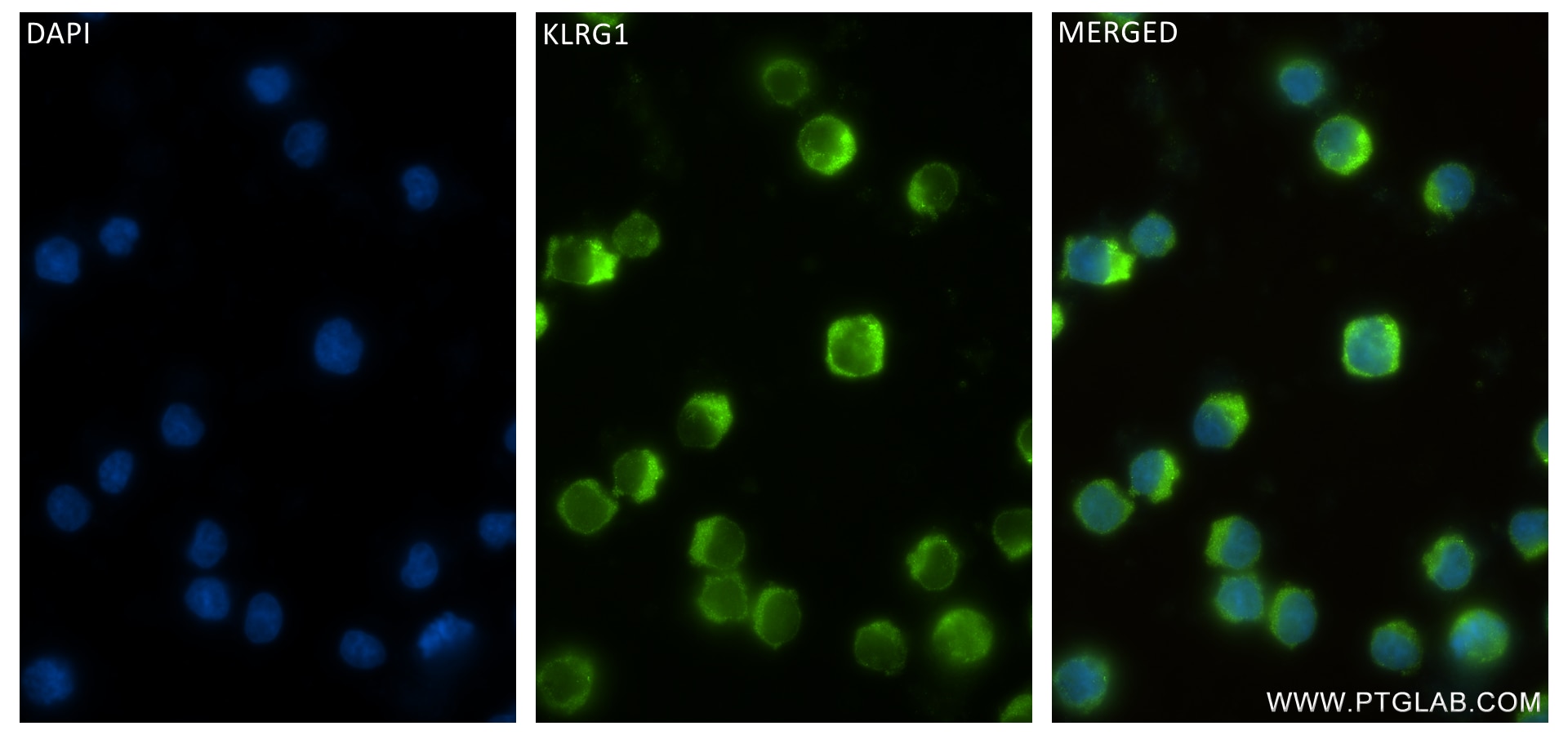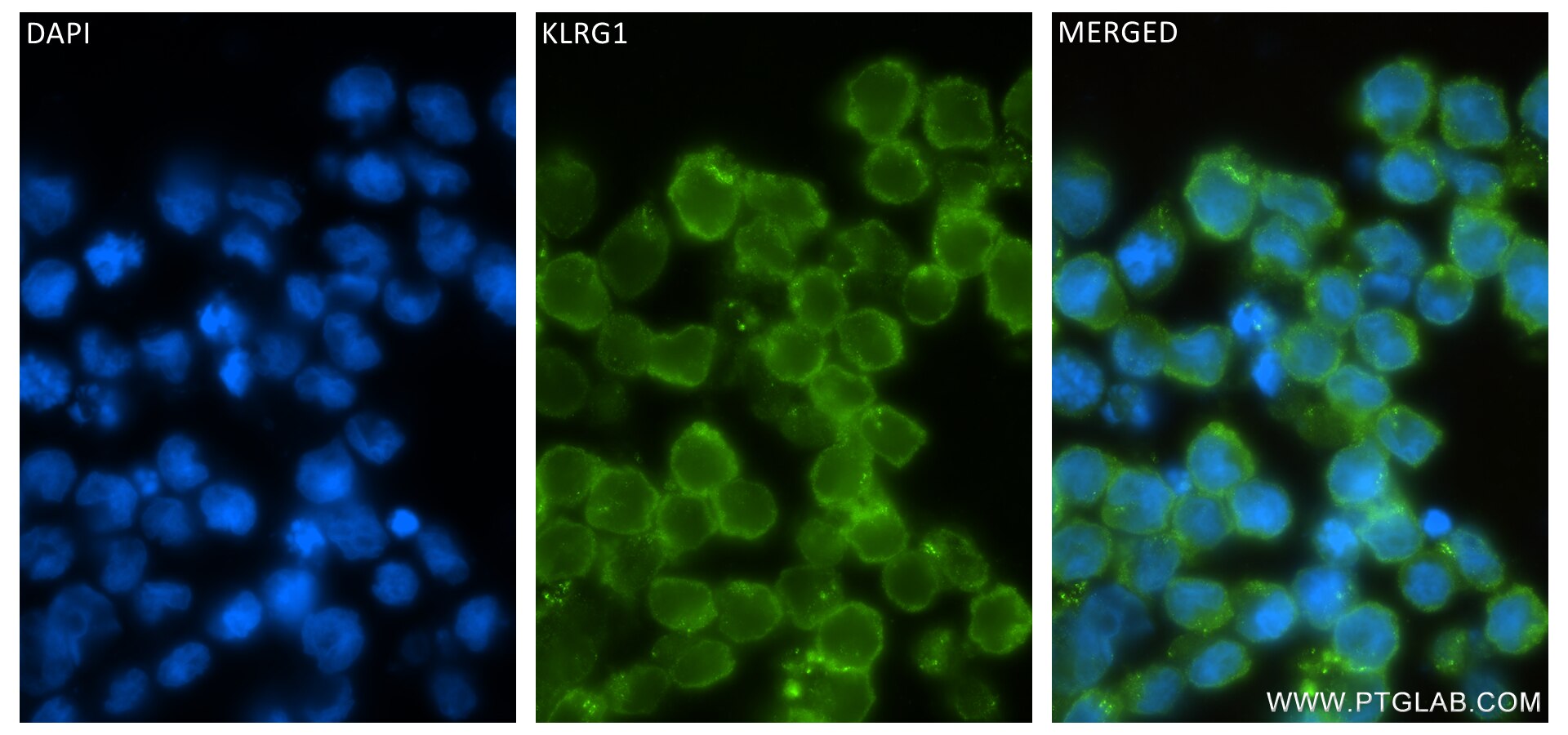Validation Data Gallery
Tested Applications
| Positive IF/ICC detected in | NK-92 cells, Jurkat cells |
Recommended dilution
| Application | Dilution |
|---|---|
| Immunofluorescence (IF)/ICC | IF/ICC : 1:125-1:500 |
| It is recommended that this reagent should be titrated in each testing system to obtain optimal results. | |
| Sample-dependent, Check data in validation data gallery. | |
Product Information
84785-5-RR targets KLRG1 in IF/ICC, ELISA applications and shows reactivity with human samples.
| Tested Reactivity | human |
| Host / Isotype | Rabbit / IgG |
| Class | Recombinant |
| Type | Antibody |
| Immunogen |
Recombinant protein 相同性解析による交差性が予測される生物種 |
| Full Name | killer cell lectin-like receptor subfamily G, member 1 |
| Calculated molecular weight | 22 kDa |
| GenBank accession number | NM_005810.4 |
| Gene Symbol | KLRG1 |
| Gene ID (NCBI) | 10219 |
| Conjugate | Unconjugated |
| Form | |
| Form | Liquid |
| Purification Method | Protein A purfication |
| UNIPROT ID | Q96E93-1 |
| Storage Buffer | PBS with 0.02% sodium azide and 50% glycerol{{ptg:BufferTemp}}7.3 |
| Storage Conditions | Store at -20°C. Stable for one year after shipment. Aliquoting is unnecessary for -20oC storage. |
Background Information
KLRG1 (killer cell lectin-like receptor subfamily G, member 1) is a C-type lectin inhibitory receptor that contains an immunoreceptor tyrosine-based inhibitory motif (ITIM) in its cytoplasmic domain. KLRG1 is expressed by subsets of NK and T cells, existing both as a monomer and as a disulfide-linked homodimer (PMID: 10741410; 19604491). It is considered to be a cell differentiation marker for NK and T cells and is strongly induced by viral and other infections (PMID: 20373518). Through interactions with members of the cadherin family, KLRG1 plays an inhibitory role on NK- and T-cell function (PMID: 19009530; 20373518).
Protocols
| Product Specific Protocols | |
|---|---|
| IF protocol for KLRG1 antibody 84785-5-RR | Download protocol |
| Standard Protocols | |
|---|---|
| Click here to view our Standard Protocols |


